Introduction to the Legal Landscape of Mergers and Acquisitions in Nigeria
The legal landscape of mergers and acquisitions (M&A) plays an important role in Nigerian company strategy, growth, and restructuring. They enable firms to grow, diversify, and improve their competitiveness.
However, navigating the legal landscape of mergers and acquisitions in Nigeria necessitates a full awareness of the regulatory environment and compliance needs.
This blog article digs into the major legislation and compliance standards that govern M&A activity in Nigeria, with a particular emphasis on the banking industry and the responsibilities of the Central Bank of Nigeria (CBN) and the Securities and Exchange Commission (SEC). Furthermore, it demonstrates how DLM Advisory can help clients shape M&A transactions.
Key Regulations Governing Mergers and Acquisitions in Nigeria
The legal structure for M&A in Nigeria is complex, encompassing a variety of laws, regulatory organisations, and compliance obligations. The key regulations are:
The Companies and Allied Matters Act (CAMA) 2020
CAMA 2020 is the principal legislation governing corporate affairs in Nigeria. It sets out the procedures for mergers, acquisitions, and other business combinations. Key provisions under CAMA 2020 include:
- Section 711: This section deals with the requirement for companies to obtain the approval of the Corporate Affairs Commission (CAC) for mergers and acquisitions.
- Section 712: This section outlines the process for obtaining court sanction for mergers.
- Section 716: This section mandates that companies must notify the Securities and Exchange Commission (SEC) of any merger or acquisition.
The Investment and Securities Act (ISA) 2007
The ISA 2007 regulates investments and securities transactions in Nigeria. It establishes the SEC as the primary regulatory authority overseeing M&A activities. Key provisions include:
- Section 118: This section requires that all mergers, acquisitions, and business combinations must be approved by the SEC.
- Section 121: This section outlines the procedures for obtaining SEC approval, including the submission of detailed documentation and compliance with regulatory requirements.
- Section 123: This section mandates the publication of notices of mergers and acquisitions in national newspapers.
The Federal Competition and Consumer Protection Act (FCCPA) 2018 for Mergers & Acquisition
The FCCPA 2018 aims to promote competition, protect consumers, and regulate monopolies. It establishes the Federal Competition and Consumer Protection Commission (FCCPC) as the regulatory body overseeing competition-related aspects of M&A. Key provisions include:
- Section 92: This section requires that companies notify the FCCPC of proposed mergers and acquisitions.
- Section 94: This section outlines the procedures for obtaining FCCPC approval, including the assessment of the potential impact on competition and consumer welfare.
- Section 97: This section mandates that the FCCPC can prohibit or impose conditions on mergers that substantially lessen competition or harm consumer interests.
The Nigerian Exchange Limited (NEL) Rules For Mergers and Acquisitions
For publicly listed companies, the NEL rules provide additional regulatory requirements for M&A activities. These rules ensure transparency, fairness, and the protection of shareholders’ interests. Key provisions include:
- Rule 5.3: This rule requires that listed companies notify the NEL of any proposed mergers, acquisitions, or business combinations.
- Rule 5.4: This rule mandates that listed companies obtain NEL approval before proceeding with any M&A transaction.
- Rule 5.5: This rule outlines the disclosure requirements for listed companies, including the publication of material information related to the M&A transaction.
Some of The Common Challenges For Mergers And Acquisitions
Navigating the legal landscape of M&A in Nigeria presents several challenges, including regulatory complexities, compliance burdens, and potential disputes. However, adopting best practices can help mitigate these challenges and ensure a successful transaction.
Regulatory Complexity
The regulatory framework for M&A in Nigeria is complex, involving multiple laws, regulations, and regulatory bodies. Navigating these complexities requires a thorough understanding of the legal requirements and proactive engagement with regulatory authorities.
Compliance Burden
Compliance with the various regulatory requirements for M&A transactions can be burdensome, involving extensive documentation, notifications, and approvals. Ensuring compliance with all relevant regulations is critical to avoid penalties and delays.
Due Diligence Challenges
Conducting thorough due diligence can be challenging, particularly in cases where information is limited or difficult to access. Identifying potential risks and liabilities requires a comprehensive review and analysis of the target company’s operations, financials, and legal status.
Integration Issues
Postmerger integration can be challenging, particularly when there are significant differences in organisational cultures, systems, and processes. Successful integration requires careful planning, effective communication, and proactive management of potential conflicts.
Mergers And Acquisition Best Practices
Engage Legal and Financial Advisors
Engaging experienced legal and financial advisors is crucial for navigating the regulatory complexities and ensuring compliance with all relevant requirements. Advisors can provide valuable insights, assist with due diligence, and guide the transaction process.
Conduct Comprehensive Due Diligence
Conducting comprehensive due diligence is essential for identifying potential risks, liabilities, and opportunities associated with the target company. This involves reviewing financial records, legal documents, contracts, and other relevant information.
Proactive Engagement with Regulators
Proactive engagement with regulatory authorities is critical for obtaining the necessary approvals and addressing any concerns or conditions imposed by the regulators. This involves submitting required documentation, providing detailed information, and addressing any queries or objections.
Clear Communication with Stakeholders
Clear communication with stakeholders, including shareholders, employees, customers, and regulatory authorities, is essential for building trust and ensuring a smooth transaction process. Providing timely and accurate information can help address concerns and foster collaboration.
Effective Integration Planning
Developing a comprehensive integration plan that addresses key areas such as organisational structure, systems integration, and cultural alignment is critical for realising the expected synergies and benefits of the M&A transaction. Effective change management strategies can help ensure a smooth transition and minimise disruptions.
Conclusion To The Legal Landscape of Mergers And Acquisitions in Nigeria
The process of mergers and acquisitions (M&A) in Nigeria is shaped by a complex legal landscape designed to ensure that such transactions are carried out transparently, fairly, and in the best interest of all stakeholders. Key regulatory bodies like the Central Bank of Nigeria (CBN) and the Securities and Exchange Commission (SEC) play crucial roles in overseeing and guiding these transactions. Their involvement helps maintain stability in the financial system and protects investors’ interests.
Navigating this legal terrain requires a thorough understanding of various regulations, including the Companies and Allied Matters Act (CAMA), the Investment and Securities Act (ISA), and industry-specific guidelines. Compliance with these regulations is not just a legal necessity but also a strategic imperative for businesses aiming to achieve seamless and successful M&A deals.
To ensure compliance and mitigate risks, companies engaging in M&A activities in Nigeria must undertake rigorous due diligence, engage experienced legal and financial advisors, and maintain transparent communication with regulatory bodies. This proactive approach can help address potential challenges and facilitate a smooth transition during mergers or acquisitions.
DLM Advisory is well-positioned to assist clients in navigating the complexities of M&A transactions. With our in-depth knowledge of the Nigerian regulatory environment and our commitment to delivering tailored solutions, we help businesses achieve their strategic goals while adhering to all legal requirements.
Whether you are looking to expand your market presence, diversify your portfolio, or enhance operational efficiencies through M&A, DLM Advisory provides the expertise and support needed to drive successful outcomes.
In conclusion, the legal landscape of mergers and acquisitions in Nigeria demands careful attention to regulatory compliance and strategic planning. By staying informed about key regulations and leveraging expert advisory services, businesses can effectively navigate this landscape and unlock new opportunities for growth and success.

